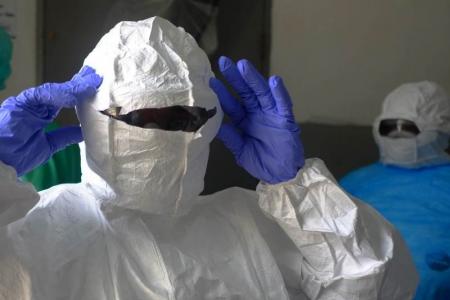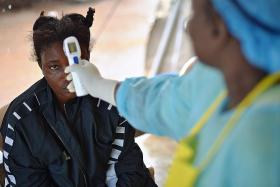Eight possible treatments, two vaccines for Ebola: WHO
Eight experimental treatments and two vaccines for Ebola were on the table on Thursday as 200 health experts met to discuss how to end the world’s worst outbreak of the killer virus.
No fully tested and approved treatments or vaccines exist for Ebola, which has killed more than 1,900 people in west Africa since the beginning of the year.
In a bid to stem the epidemic, the World Health Organisation (WHO) has condoned the use of experimental drugs.
Experts in Geneva were discussing which treatments were in the pipeline and how quickly they could be made available to the public.
In a working document for the closed-door meeting, the UN health agency listed eight potential therapies, including the experimental drug ZMapp.
The drug has been given to a handful of frontline health workers who have contracted Ebola.
Three of them have recovered, while two have died.

A sick child waiting for help outside the John Fitzgerald Kennedy hospital in Monrovia on Wednesday
Two experimental vaccines for Ebola, which transmits through contact with infected bodily fluids, were also listed.
“None are clinically proven,” WHO stressed in its working document.
It added that “while extraordinary measures are now in place to accelerate the pace of clinical trials, new treatments or vaccines are not expected for widespread use before the end of this year”.
“Until then, only small quantities of up to a few... doses/treatments will be available,” it said, pointing out that in normal circumstances, the clinical evaluation period for new drugs and vaccines can take up to a decade.
The experts meeting on Thursday, including policy makers, ethicists, clinicians, researchers and patient representatives from affected countries, also aimed to facilitate contacts between countries affected by the disease and countries producing treatments.
Source: AFP
Get The New Paper on your phone with the free TNP app. Download from the Apple App Store or Google Play Store now


